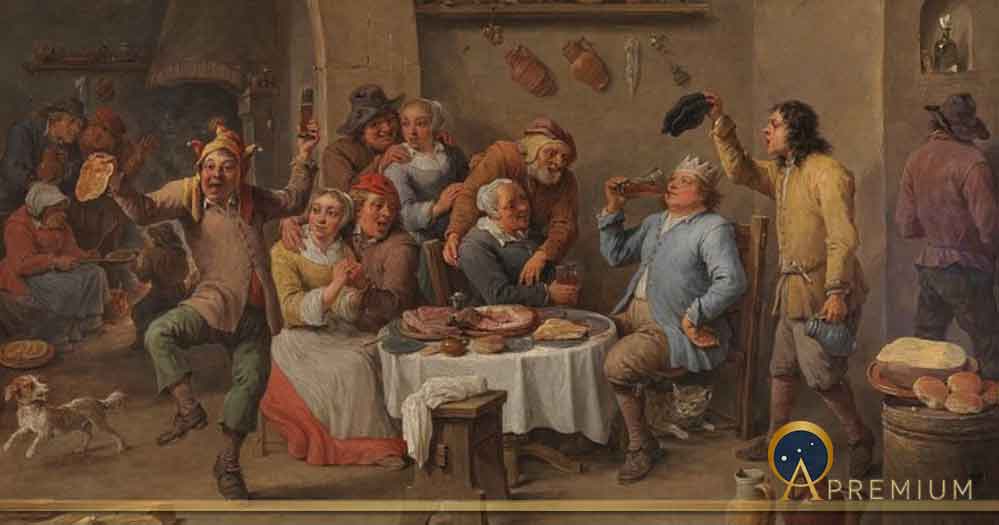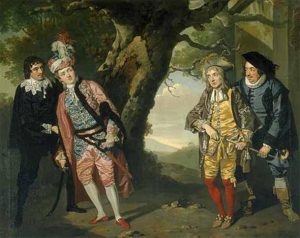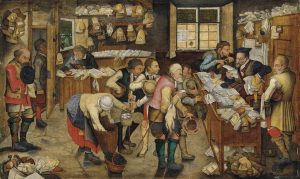Twelfth Night Celebrations: Myrrh, Humor, and Joy, January 5–6

In the Christian church, January 6 is commemorated as the feast of Epiphany, the day on which the three wise men, or three kings, arrived at the stable in Bethlehem to visit the newborn baby Jesus. In 1756, during the reign of King George II, The Gentleman’s Magazine reported that: ‘His Majesty, attended by the principal officers at Court … went to the Chapel Royal at St James’ and offered gold, myrrh and frankincense.’ By the 19th century, however, these religious celebrations on January 6 had become almost forgotten, outside of the church itself. By the time of Charles Dickens’ birth (1812), the celebration of Twelfth Night in Britain was much more closely associated with parties and drinking, than with the original religious holiday. There is often debate about when Twelfth Night should fall, as the 12th evening after Christmas Day is actually January 5.
17th-Century Twelfth Night
For many centuries, it was traditional for leaders of the Twelfth Night revels to be chosen and named as the ‘King’ and ‘Queen; as such, it was in their power to dictate what the rest of the gathered party should do. Traditionally, these monarchs were chosen by chance; everyone present at a party would be given a slice of what was known as Twelfth Cake, inside which had been baked a dried bean and a dried pea. Whoever discovered these in their slice of cake became a monarch: getting the dried bean meant being the King and the dried pea meant being the Queen. This quotation from Robert Herricke’s poem Twelfe Night, or King and Queene (c.1630s) shows that this was common in the 17th century: “Now, now the mirth comes with the cake full of plums, Where Beane’s the King of the sport here; Besides we must know, the Pea also must revell, as Queene, in the Court here.”


Scene from Shakespeare’s Twelfth Night by Francis Wheatley (1771–72) (Public Domain)
The diaries of the 17th-century courtier Samuel Pepys, show that he celebrated it on January 6, except for in those years when it fell on a Sunday, when celebrations were deferred until the Monday. On January 6, 1663, he recorded: “ 6th (Twelfth Day). Up and Mr. Creed brought a pot of chocolate ready made for our morning draft, and then he and I to the Duke’s, but I was not very willing to be seen at this end of the town, and so returned to our lodgings, and took my wife by coach to my brother’s…”
Like this Preview and want to read on? You can! JOIN US THERE ( with easy, instant access ) and see what you’re missing!! All Premium articles are available in full, with immediate access.
For the price of a cup of coffee, you get this and all the other great benefits at Ancient Origins Premium. And – each time you support AO Premium, you support independent thought and writing.
Taken from Dickens and Christmas (2017) by his descendant Lucinda Hawksley (Pen and Sword History)
Lucinda Hawksley is an author, broadcaster, lecturer, presenter and award-winning travel writer. She is a Patron of the Charles Dickens Museum in London and of the De Morgan Foundation. Her latest book is Dickens and Travel (2022), which explores the journeys made by her great great great grandfather, Charles Dickens, alongside his travel writing. She is the author of Dickens and Christmas.